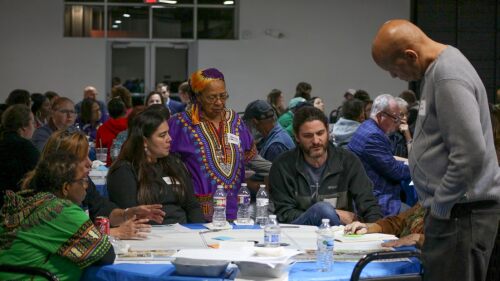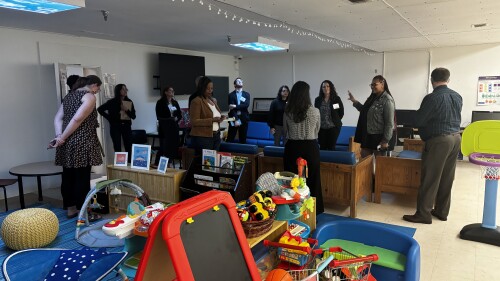In a talk at ULI’s Fall Meeting in Los Angeles, syndicated columnist, bestselling author, and television commentator George F. Will sounded a dire warning that the United States is on a path to fiscal ruin.
Will, whose twice-weekly national affairs column appears in 475 U.S. newspapers, said the nation is on an unsustainable path. He blamed Americans’ overdependence on big government, the cost of medical care for an increasingly older population, and politicians’ reluctance to challenge entrenched special interests.
Will said that although the nation is widely perceived as being increasingly polarized politically, “the principal problem in our country is consensus.” Americans have grown accustomed to a large, expensive welfare state, he said, and are opposed to restraining the cost of entitlement programs such as Social Security and Medicare. (According to PolitiFact, those two programs, plus the Medicaid program for low-income Americans, account for slightly more than half the federal budget.)
“We used to build roads and highways for the future,” Will said. “Now, we’re borrowing from future unborn generations to pay for our present consumption.”
Will was pessimistic about the prospects for tax reform in the GOP-controlled Congress, noting caustically that in the political conversation, the word “reform” seems to have been replaced by “tax reduction.”
Members of Congress are unlikely to make any substantial changes in the long, complex U.S. tax code, he said, because various provisions are all protected by interest groups. A proposal to eliminate federal deductions for state and local income taxes was dead on arrival, according to Will, because a third of the GOP House delegation comes from high-tax states such as California, New York, and Massachusetts.
Without any meaningful cuts in government spending to pay for tax cuts, legislators have tried to claim that those cuts will stimulate enough economic growth to balance the budget, Will said. He mocked such projections, likening them to a fictitious economist who insisted that he would not get wet in a deluge because “we’re going to assume an umbrella.”
Will said that the nation had been able to avoid fiscal disaster because historically low interest rates “have made big government cheap.” But once the cost of borrowing rises back toward the norm, he predicted, “the deficit will explode, and the debt will become its own main driver.”
Will argued that too much of the nation’s taxes are paid by high earners, while the lower half of earners pay no income taxes at all. (The Tax Policy Center estimated in 2015 that 45.3 percent of Americans paid no income tax.)
“We have a growing number of Americans who are not paying for the government that they’re getting,” he said.
Will also advocated eliminating the 35 percent federal corporate income tax, which President Donald Trump has advocated cutting to as low as 15 percent. “The right corporate tax rate is zero,” Will said. He also advocated eliminating the federal estate tax, which ranges from 8.8 percent to 19.4 percent and is assessed against estates worth more than $5.4 million, according to the Center on Budget and Policy Priorities.
He was critical of President Trump’s idea of using an infrastructure building program as a job-creating stimulus, as well as of the president’s protectionist trade views, dismissing the significance of U.S. trade deficits with other countries.
“Somehow, free market exchanges work out and even everything out,” said Will.
In response to question from an audience member about the future of the Republican Party, Will said that the rift between traditional fiscal conservatives and Trump’s supporters had ruptured the GOP. “It is Mr. Trump’s party now,” he said.





